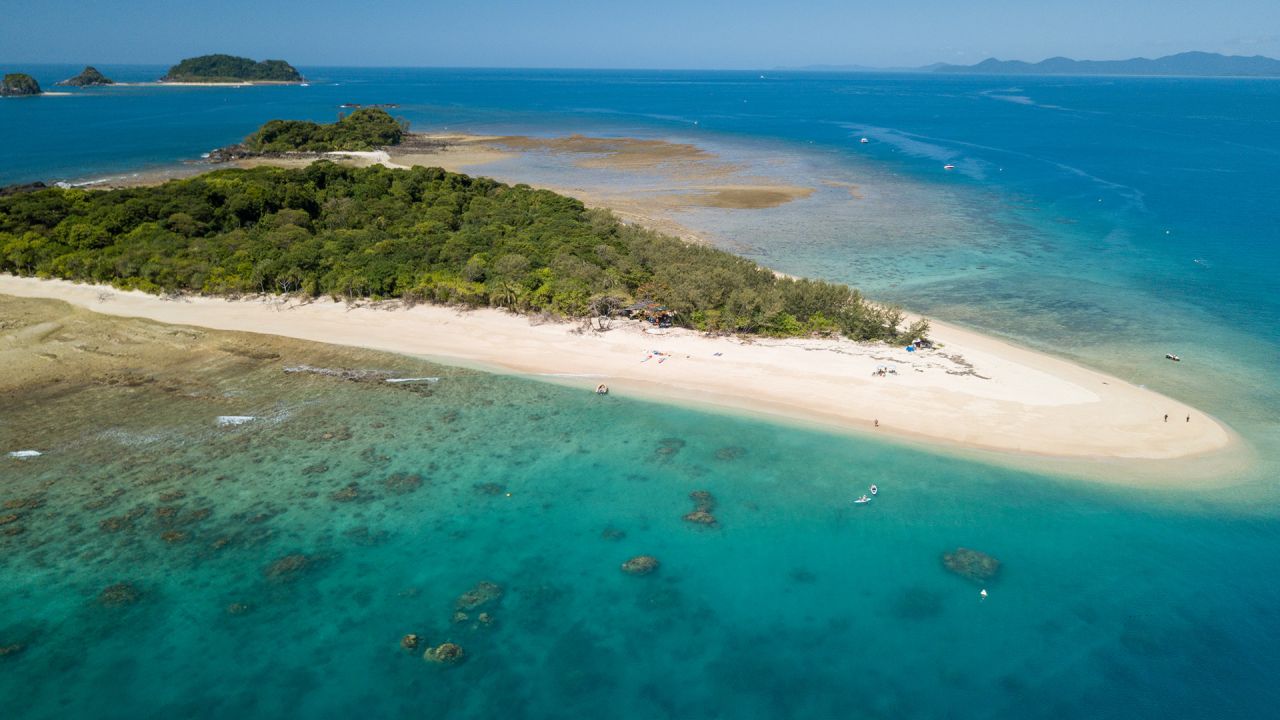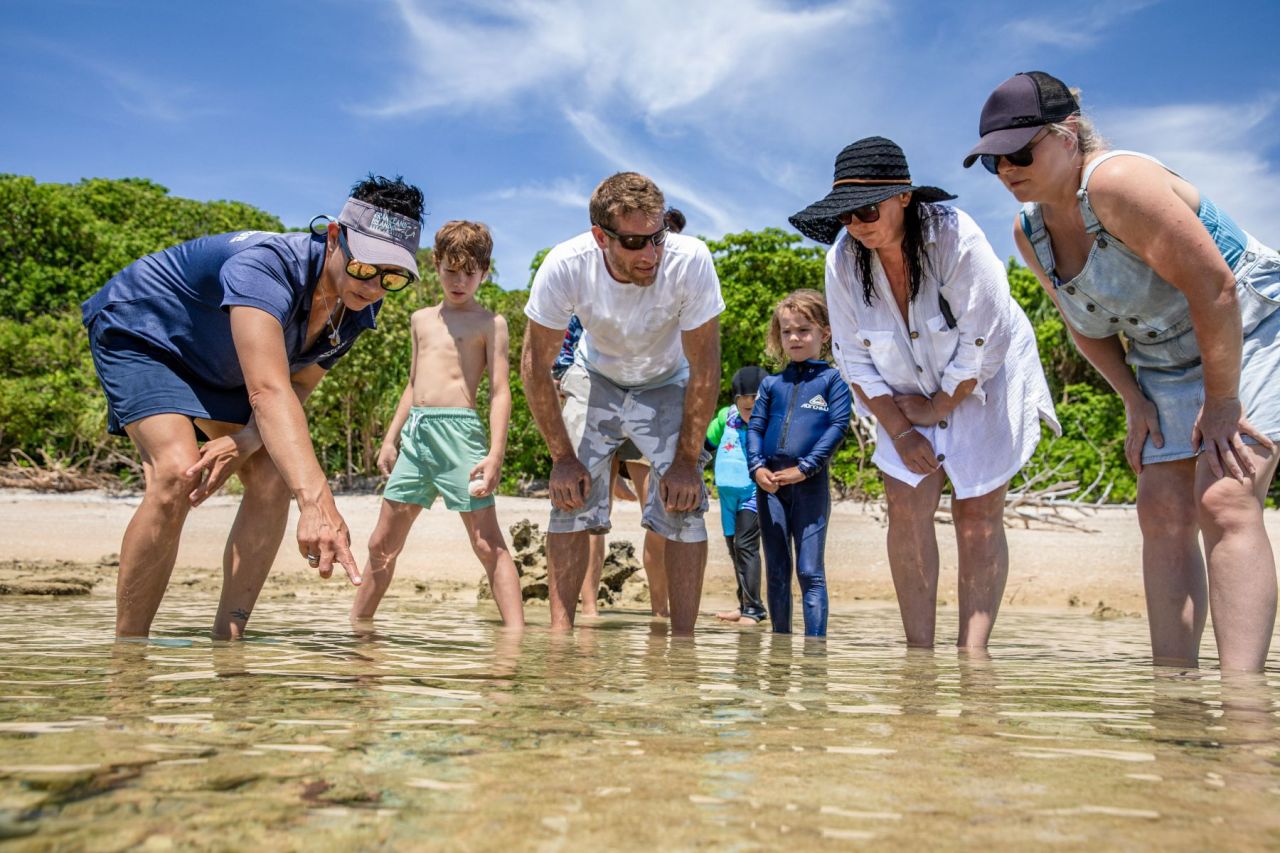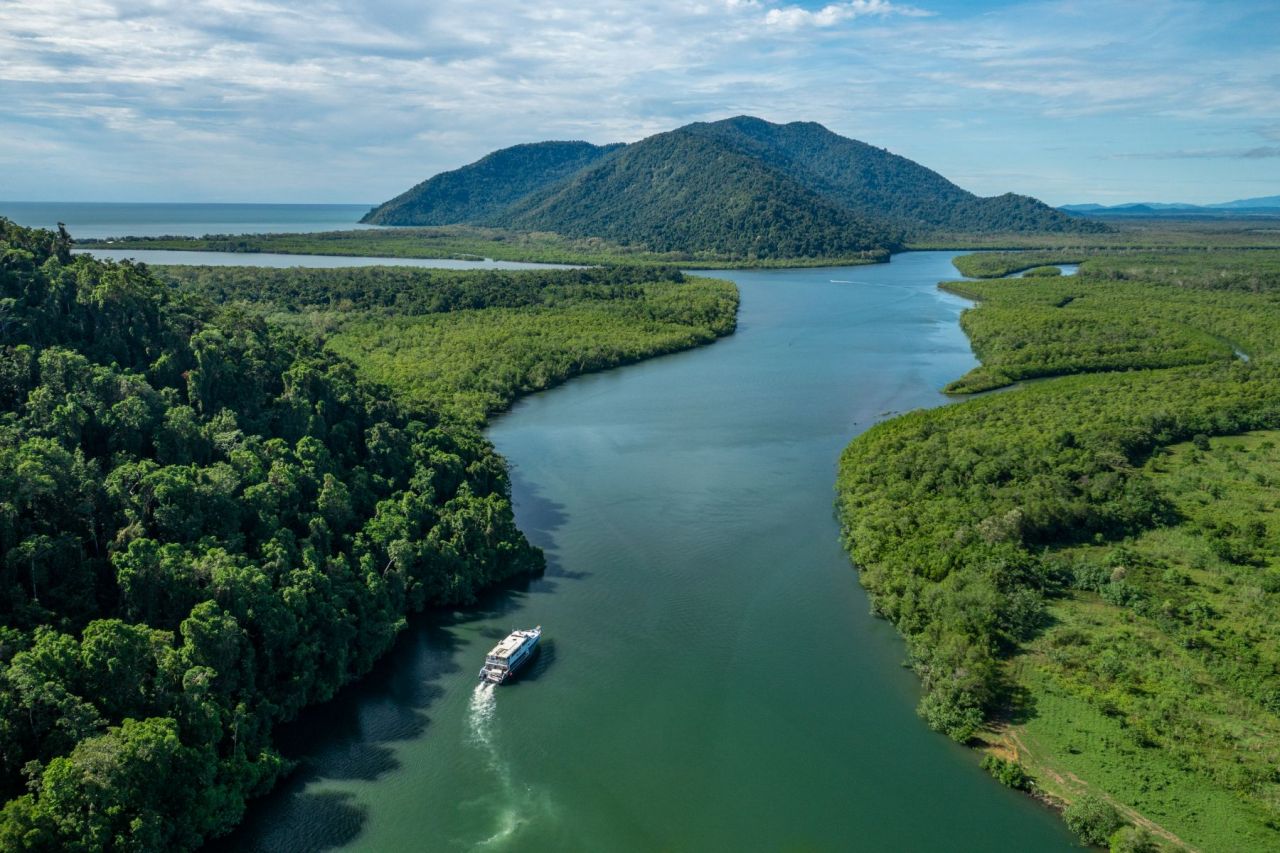The Frankland Islands stand as remnants of weathered metamorphic rock, once part of a coastal mountain range, now separated from the mainland due to a rise in sea level approximately 6,000 years ago. The landscapes of the Frankland Islands showcase remarkable diversity, encompassing shallow rocky reefs, mangroves, sand spits, beaches, open woodlands, exposed rock faces, and dense rainforests.
Surrounding the islands, extensive fringing reefs add to the splendor, creating an underwater wonderland teeming with marine life. The Frankland Island Reef Experienes 'Guided Island Walk' is a must-do, where you can join marine naturalists for an informative and fascinating exploration of the island's rock pools, beaches, birdlife and lush tropical vegetation.
Sandy Beaches
The islands are surrounded by pristine sandy beaches, which are characteristic of tropical coastal regions. One of the truly unique experiences is finding 'star sand'. This is only possible in a handful of locations in the world. In fact, it's also known as 'Okinawa Star Sand' as Okinawa, Japan, as this was the first place where these organisms were discovered. These beaches are also an essential nesting ground for various seabirds, including the little tern, beach stone-curlew, pied imperial pigeon, and crested tern. Birdwatchers can witness these fascinating creatures in their natural habitats, adding to the overall enchantment of the island experience.

Rocky Outcrops
In the intertidal zones and along the coastline of Normanby Island, guests will find mangrove forests, which play a vital role in protecting the coast from erosion while providing essential habitat for marine life, including juvenile fish and crustaceans.
During low tide, when the water level recedes, rock pools are left behind, creating temporary sanctuaries for various marine life. Visitors can observe an array of fascinating creatures that inhabit these shallow pools, including small fish, sting rays, sharks, crabs, sea cucumbers, brittlestars, sea snails, and other marine invertebrates. The rock pools also provide a safe and calm environment for children and families to explore the marine life up close.

Lush Rainforests & Mangroves
The interior parts of the islands are covered with lush rainforest vegetation, characterized by tall trees, ferns, and vines. These rainforests are home to a variety of flora and fauna, creating a serene and biodiverse environment. Pandanus trees are commonly found on the Frankland Island, with the unique, spiky leaves and produce large fruits that are important food sources for some wildlife. Coconut palms, with their tall, slender trunks and iconic coconuts, can also be found on the islands' shores, perfect for those tropical oasis photographs!
The Frankland Islands Reef Cruises experience commences on the spectacuar Mulgrave River. The rainforests along this waterway are characterised by their dense and lush vegetation, featuring towering trees, a rich understory, and an abundance of ferns, vines, and epiphytes.These rainforests are situated in the region around the Mulgrave River, which flows through the Wet Tropics of Queensland, a UNESCO World Heritage-listed area renowned for its exceptional biodiversity and ecological significance.
The mangroves along the Mulgrave River are an essential and fascinating part of the river's ecosystem. Mangroves are salt-tolerant trees and shrubs that thrive in intertidal zones, where the river meets the coast. They play a crucial role in maintaining the health and balance of coastal ecosystems and provide numerous benefits to the surrounding environment and wildlife. The dense root systems and tangled vegetation of mangroves create a complex and sheltered nursery habitat for various marine species. Juvenile fish, crustaceans, and other aquatic organisms find safety and abundant food resources among the mangrove roots, which contributes to the overall health and productivity of the river's ecosystem.

